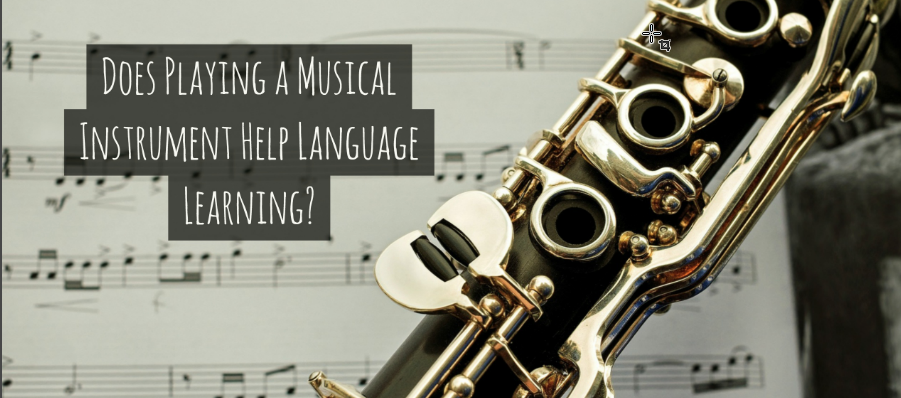January 12, 2018

Growing up, my parents had me begin taking piano lessons when I was five years old. I took lessons for about ten years. Later I picked up the clarinet also, playing for about seven years. Does all that practice pay off outside of just developing musical talent? In my opinion, playing a musical instrument can help those trying to learn a new language, here’s why: Increases sensitivity to pitch
Before performing, all instruments are first tuned to make sure they are on pitch. For example, if you have ever attended a symphony, you will hear the orchestra warm up by all tuning to one instrument. As a musician, you must develop an ear for pitch and be able to hear whether you are in tune or not. To develop this skill takes years of practice. When learning another language, the ability to hear different pitch sounds is important to develop a good accent. In some languages like Chinese, pitch is extremely crucial in differentiating words. Having the sensitivity to pitch can greatly help language learning skills in this way. Developed sound patterns
When playing music, your brain learns how to extract patterns such as rhythm and harmony. Languages, like music, have patterns. By learning how to extract patterns already, can make it easier to identify patterns in speech. Mastering patterns help increase memory and strengthen your mental capacity. Learning is similar
It is impossible to learn how to play an instrument or learn a language in one day. Both take persistence, dedicated time and lots and lots of practice. What are your thoughts on whether playing a musical instrument has an effect on language learning? Please share your comments with us below. Tags:
language learning,
learning,
learning a language,
musical instrument,
pitch 